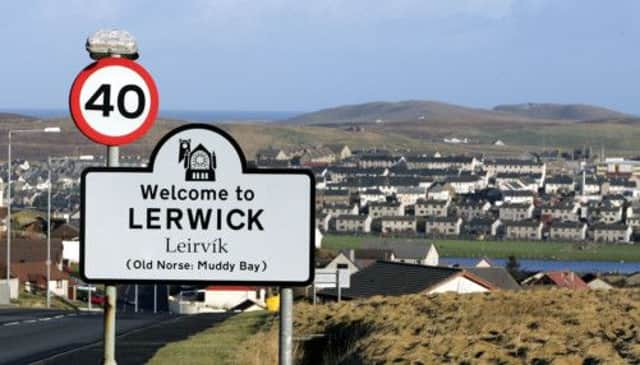Shetland economy tops £1bn for first time


The islands’ economy has risen dramatically by 27 per cent in just eight years to £1,091.4 million in 2011, according to a new study commissioned by Shetland Islands Council.
And the average household income is estimated at £38,418 per annum – an increase of 17 per cent since 2003.
Advertisement
Hide AdAdvertisement
Hide AdThe report, by the Hutton Institute, reveals that the growth in the islands economy was achieved despite a decline, in relative terms, of output at the giant Sullom Voe oil terminal, one of Shetland’s largest private sector employers.
And it states: “The figures demonstrate that the Shetland economy has experienced strong growth in the period since the last Input-Output Study in 2003, in the face of challenging national and international
economic conditions. This growth can be traced to expansion in both the private and public sectors.”
The report continues: The structure of the Shetland economy appears relatively stable: four of the five top contributors to the region’s output are the same as in 2003. But there have also been important changes. Construction and the Sullom Voe oil terminal have declined in relative terms since 1996, while aquaculture and to a lesser degree fish processing have taken their place. The decline of the oil terminal directly curtailed Shetland’s net output growth by ten per cent, while the construction sector contributed two per cent of growth despite the loss of its preeminent place in the region’s economy.”
According to the report, fish catching, aquaculture and processing industries remain Shetland’s most valuable sector with a total output of just over £300 million. The construction sector accounted for £77.7 million and public administration – including public bodies such as the council, the emergency services and local branches of government agencies – totalled £67.6 million.
The Exchequer Balance, which measures the difference between central government revenue and expenditure, shows that Shetland also made a positive contribution of £82 million to the Exchequer in 2011.
A spokeswoman for Shetland islands Council stressed: “The focus of the study is the period 2010/11, and therefore does not factor in the increased amount of oil and gas-related work over the past two years. However, a number of potential scenarios look at how the economy could be affected by changes in the economic landscape. Included is the possibility of SIC annual savings of £26 million – which it’s estimated could lead to a decrease in total output of around 3.3 per cent.”
Councillor Alastair Cooper, chairman of the SIC’s Development Committee, said: “This is a tremendous document, covering all sectors of the Shetland economy between 2003 and 2011. This was period of great upheaval in the national and global economies, yet the figures in this report demonstrate robust growth in Shetland.
Advertisement
Hide AdAdvertisement
Hide Ad“The importance of this report is that it includes a wealth of information on every aspect of our economy, from the individual householder up to our most important industries.”
The report will be discussed by councillors at next Wednesday’s development committee meeting.